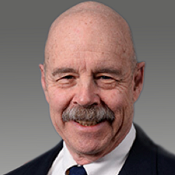Duns Scotus’s Modal Argument for the Existence and Freedom of God
The medieval theologian, Duns Scotus, attempts to prove not only the existence of God, but God’s freedom as well.

In his rightly admired lecture, “Progress or Return,” Leo Strauss says, perhaps surprisingly, that the fundamental conflict between philosophy and the Bible does not turn on the question whether God, construed as an intelligent first principle of the whole, exists. A philosopher, as Strauss understands him, can hold that God, so construed, does exist. However, Strauss says, “For a philosopher or philosophy, there can never be an absolute sacredness of a particular or contingent event.” God’s freecreation of the world and his free revelation to human beings of his own choosing would be particular and contingent events of absolute sacredness. The medieval theologian, Duns Scotus, attempts to prove not only the existence of God, but God’s freedom as well. His ingenious and rightly argued proof does not rely on the claims of revelation and it does not rely on the claims of natural science, Aristotelian or otherwise. It is a purely metaphysical argument. As such, his proof is invulnerable tocriticisms coming from natural science, or from political philosophy for that matter. In the perennial dispute between those who follow the way of philosophy and those who believe in divine revelation, Scotus’s distant and generally disregarded voice deserves a hearing.
Co-sponsored by CTI at the Jefferson Center
Refreshments provided
Dr. Carey graduated from the University of North Carolina with a BA in music. He received his MA and his PhD, both in philosophy, from The Graduate Faculty of The New School for Social Research. In addition to serving as Tutor, and twice as Dean, at St. John’s College, Santa Fe, he has served as Distinguished Visiting Professor in the Department of Philosophy at the United States Air Force Academy from 2004 to 2007, from 2009 to 2014, and from 2016 to the present. Dr. Carey’s primary research interests center on logic and metaphysics in the history of philosophy. He has been an invited speaker at universities across the country, including Tulane University and Catholic University of America. In his talks, Dr. Carey has addressed topics such as medieval proofs of the existence of God and the relation between philosophy and religious belief. Most recently, he has written Natural Reason and Natural Law: An Assessment of the Straussian Criticisms of Thomas Aquinas, which defends Thomistic natural law theory as genuinely grounded in human nature and practical reason.
